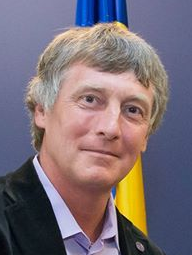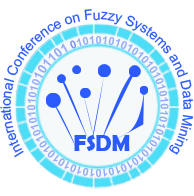Invited Speaker

Dr. Dmitry Zaitsev, Professor
Department of Information Technology, Odessa State Environmental University, UkraineSpeech Title: Synthesis of fuzzy logic functions defined in tabular form
Abstract: The early published method of a continuous (fuzzy) logic function synthesis on a choice table has been adjusted for fast partitioning the source choice table with a set of fuzzy logic functions. Constituents of minimum and maximum have been introduced, their properties studied. A toolbox for fuzzy logic functions synthesis on a choice table, available for free download on GitHub, has been implemented in C language. The toolbox implements a command line style of programming using data located in textual files of simple intuitive formats. The toolbox can process big data rapidly and can be easily integrated into fuzzy logic frameworks as a synthesis engine for developing graphical environment of fuzzy (control) systems design. It has been proven that obtained decomposition into a set of fuzzy logic function contains the minimal number of fuzzy logic functions.
Biography: Dmitry A. Zaitsev received the Eng. degree in Applied Mathematics from Donetsk Polytechnic Institute, Donetsk, Ukraine, in 1986, the Ph.D. degree in Automated Control from the Kiev Institute of Cybernetics, Kiev, Ukraine, in 1991, and the Dr.Sc. degree in Telecommunications from the Odessa National Academy of Telecommunications, Odessa, Ukraine, in 2006. He has been a Professor of Information Technology at Odessa State Environmental University, Ukraine, since 2019. He developed the analysis of infinite Petri nets with regular structure, the decomposition of Petri nets in clans, generalized neighborhood for cellular automata, and the method of synthesis of fuzzy logic function given by tables. He developed Opera-Topaz software for manufacture operative planning and control; a new stack of networking protocols E6 and its implementation within Linux kernel; Petri net analysis software Deborah, Adriana, and ParAd; models of TCP, BGP, IOTP protocols, Ethernet, IP, MPLS, PBB, and Bluetooth networks. His current research interests include Petri net theory and its application in networking, computing and automated manufacture. Recently he started working in the area of exascale computing applying his theory of clans to speed-up solving sparse linear systems on parallel and distributed architectures. He was a co-director of joint projects with China and Austria. Recently he has been a visiting professor to Technical University of Dortmund, Germany on DAAD scholarship, to University of Tennessee Knoxville, USA on Fulbright scholarship and to Eindhoven University of Technology, Netherlands. He published a monograph, 3 book chapters and more than a hundred of papers including issues listed in JCR. He is a senior member of ACM and IEEE. Additional information including papers, software, models, video-lectures in put on personal website via http://daze.ho.ua
